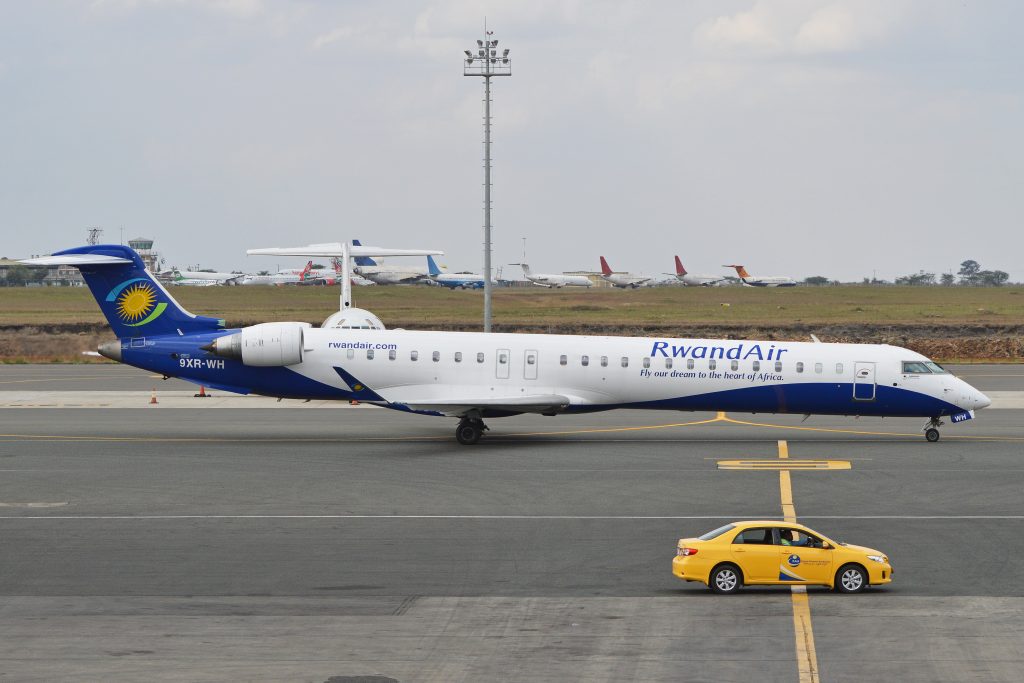Appetite for travel remains strong as Rwandair becomes first African airline to pilot IATA Travel Pass

The air travel industry faces mixed prospects even as Covid-19 vaccination gathers pace across the globe, according to the results of a consumer survey across eleven key markets by airline lobby IATA.
While the desire to travel by air to visit friends and family remains strong, fewer people would be willing to travel for business. Another significant fraction of respondents would also travel less by air for economic reasons.
Conducted between February 15-23, this was IATA’s fifth such survey since the world went into Covid-19 imposed lockdowns one year ago. It was based on the sentiments of people that had taken an air journey during the preceding six-month period.
“It is encouraging that people have not lost their appetite for the freedom to fly as shown in the survey. But we need to be ready when borders reopen,” says IATA chief executive Alexandre de Juniac.
“That means working with governments in establishing restart plans so that people don’t suffer the socioeconomic cost of travel restrictions longer than necessary and developing globally recognised digital standards that governments will accept as vaccination and testing credentials for travel.” He added.
De Juniac further warned that although there will be significant demand for air travel, recovery has not yet started and airlines continue to burn cash at dangerously high levels for some players.
“Governments need to keep watch and provide relief for those airlines that might make it through to recovery,” he said.
According to the survey findings, 57 pc of regular travellers would be willing to fly again within two months or less if Covid-19 related travel restrictions were lifted today. Of these 72pc would travel by air immediately to see friends and family while 81percent were more likely to travel if the received a Covid-19 vaccine.
However, 62pc say they were less likely to travel for business, reflecting the impact of the new normal of virtual meetings that many businesses used to maintain communication during the pandemic.
Quarantines on arrival by far remain the biggest obstacle to travel with 84pc of respondents saying that they would not travel at all if that involved being quarantined at the destination.
Just over two thirds of respondents said travel restrictions were negatively affecting their quality of life while just under a half, missed friends and family and the sense of freedom that flying brings. About a third said they could not do business normally.
A majority, 88pc, feel that there is a need to strike a balance between the risk of Covid and getting the world economy running again. An almost equal number – 87pc, agreed that there is a need to manage the risk of Covid-19 in order for people to live and travel normally while 85 percent said governments need to set targets and milestones for the reopening of borders based on testing capacity and vaccination for covid-19.
The feeling across the board was that a person who has tested negative for Covid-19 should not be subject travel quarantines with 71pc suggesting border closures should end as testing and vaccine capacity increase.
Four-fifths of travellers’ also support a standard travel app recognized by all governments that would be used to capture and store health certification data such results for Covid-19 tests, to facilitate seamless travel across the journey.
IATA has developed the Travel Pass, an app that would cater to such a need and has been arguing governments to support it. Rwandair has become the first African airline to join the pilot for the app that will go live on March 15, on Singapore Airlines London route.
Passengers will download the app on their mobile device to create a digital identity through which they can pre-book their Covid-19 tests and upload the results together with their travel information.

 African Heads of state head to South Korea next week for Summit talks
African Heads of state head to South Korea next week for Summit talks
 Trading leads as main source of income for Ugandans
Trading leads as main source of income for Ugandans
 New leadership for bankers’ umbrella as total assets top $12 billion
New leadership for bankers’ umbrella as total assets top $12 billion
 Brussels Airlines to announce Nairobi service
Brussels Airlines to announce Nairobi service
 SITA promises enhanced travel experience after Materna acquisition
SITA promises enhanced travel experience after Materna acquisition
 Saudia’s 105 aircraft order stretches A320neo lead over rival Max
Saudia’s 105 aircraft order stretches A320neo lead over rival Max
